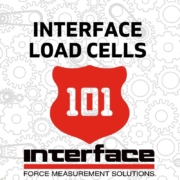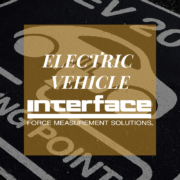Interface Measurement Solutions for Shipbuilding From Hull to Deck
 The maritime industry’s shipbuilding sector is complex and multifaceted, where precision measurement is instrumental. Shipbuilders use advanced force, torque, and weighing measurement solutions for engineering design, building, and performance to the highest standards. Interface provides sensors and instruments that enhance quality and safety in the shipbuilding sector.
The maritime industry’s shipbuilding sector is complex and multifaceted, where precision measurement is instrumental. Shipbuilders use advanced force, torque, and weighing measurement solutions for engineering design, building, and performance to the highest standards. Interface provides sensors and instruments that enhance quality and safety in the shipbuilding sector.
In shipbuilding, the slightest miscalculation can lead to significant operational risks. Ships, both commercial and military, are exposed to some of the harshest environments. Ensuring their safety and longevity is essential to withstand extreme forces, maintain structural integrity, and optimize performance.
Interface’s measurement solutions, including load cells, torque transducers, load pins, and ATEX-certified sensors, allow shipbuilders to monitor and evaluate loads, torque, and weight applied during the construction, assembly, and testing phases, ensuring every part meets stringent requirements.
Interface load cells measure stress with pinpoint accuracy for shipbuilders. They can utilize Interface load cells strategically placed on the hull, bulkheads, and other critical structural members to precisely measure the forces and stresses experienced during sea trials. This data provides invaluable insights into the ship’s structural performance, allowing for optimization and validation of the design. Data from measurement solutions helps shipbuilders fine-tune the vessel’s center of gravity and ensure optimal stability in various loading conditions and sea states.
Interface Solutions for Critical Shipbuilding Tasks
Material Testing for Hull Construction
The hull is any vessel’s backbone, maintaining buoyancy and structural integrity. Testing the materials used to construct a ship’s hull is crucial to ensure they can withstand forces from water pressure, waves, and impact. Interface’s force sensors help engineers measure the tensile, compressive, and shear forces that hull materials must endure, ensuring safety and compliance with maritime standards.
Load Monitoring in Ship Assembly
Various components, such as engines, propellers, and heavy machinery, are installed during the ship assembly. Accurate load measurement is critical when lifting and positioning these large components to avoid structural damage or misalignment. Interface’s load pins and wireless force sensors provide real-time data to assist in the safe and accurate assembly of ships.
Testing the Rigging and Anchoring Systems
Rigging and anchoring systems are subjected to immense forces, especially in turbulent sea conditions. Interface measurement products test the durability and capacity of these systems, ensuring that the ship remains secure and functional even in the most extreme environments. Interface also offers submersible measurement solutions for monitoring rigging and anchoring in real time.
Structural Load Testing for Ship Decks
The decks of a ship must be able to carry heavy loads, whether cargo, military equipment, or passengers. Using Interface sensors and instrumentation, engineers can simulate various load conditions and identify potential weak points in the deck’s design. This testing helps prevent overloading and structural failure and enhances overall ship performance.
Safety and Performance Monitoring
Safety is also a top priority in shipbuilding. Sensor technologies from Interface help ensure ships are constructed to meet the highest safety standards. By providing precise, real-time data, Interface allows engineers to identify potential issues early in the manufacturing process, minimizing the risk of accidents or failures at sea. This data-driven approach enhances the ship’s safety and boosts operational efficiency, reducing downtime and maintenance costs.
By incorporating Interface’s advanced sensor technologies, shipbuilders can achieve higher precision and efficiency in their testing and measurement processes, ultimately leading to safer, more reliable, and better-performing vessels.
Interface Products Used by Shipbuilders
- Load Cells
- Mini Load Cells
- Load Shackles
- Load Pin Load Cells
- Tension Load Links
- Hazardous Environment Sensor Solutions
- Torque Transducers
- Wireless and Bluetooth Telemetry Systems
- Multi-Axis Sensors
- Instrumentation and Digital Instrumentation
The shipbuilding industry requires certain certificates and approvals, such as the ATEX certification. Our hazardous environment products, like the ITCA tension and Compression Load Cell, ICPA Stainless Steel Compression-Only Load Cell, and LP Custom Stainless Steel Load Pins, all meet ATEX requirements. These products are backed by IECEx and North American certifications, further validating their safety standards.
Interface’s force measurement technology is indispensable for the modern shipbuilding industry. Interface’s solutions help shipbuilders produce high-quality, safe, and reliable vessels, from testing materials for durability to ensuring the safe assembly of critical components. With ongoing advancements in maritime engineering, Interface continues to innovate, providing essential tools to meet the evolving demands of shipbuilding.
For shipbuilders looking to enhance precision, safety, and efficiency, Interface offers cutting-edge force measurement solutions tailored to the maritime industry’s unique challenges. Here are some of the maritime solutions Interface is known for in the industry.
ADDITIONAL RESOURCES
Maritime Measurement Solutions for Onshore and Submersible Applications
MARITIME Hydrofoil Testing in Wave Tank App Note
MARITIME Crane Block Safety Check App Note
Seaside Ports are Optimizing Efficiency and Safety Using Interface Sensor Technologies
Interface Submersible Load Cells
Maritime-Brochure







